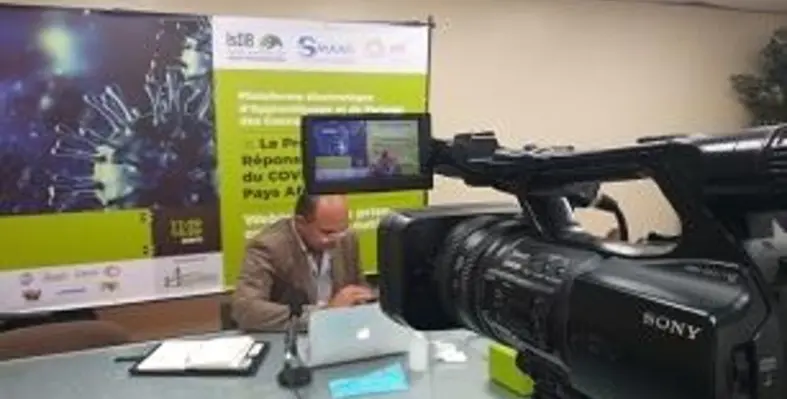As a part of the COVID-19 crisis response, the Islamic Development Bank (IsDB) and the International Islamic Trade Finance Corporation (ITFC), in collaboration with the Moroccan Society of Anaesthesia, Analgesia and Resuscitation (SMAAR), have launched an online platform
The aim is to enable exchange of knowledge and facilitate learning between medical teams from African member countries.
The initiative, known as ‘Response, Restore and Restart COVID-19 Strategic Program,’ comes under the Reverse Linkage Mechanism, and the Arab Africa Trade Bridges (AATB) Programme, which aims to strengthen the capacities of member countries, by engaging in dialogue and scenario mapping, identifying major challenges and outlining the best practices approach for integrating the response strategies in their respective countries.
The e-learning and knowledge sharing platform provides online training, coordination and virtual meetings, sharing of best practices, crucial lessons, and access to training and communication materials. It allows medical professionals in IsDB member countries to learn from the experiences of other countries, which have already made significant advances in their treatment of COVID-19, within and outside Africa.
Amadou Thierno Diallo, acting director of global practices, IsDB, said, “To combat the COVID-19 pandemic, sharing of experiences, transfer of technical expertise, as well as the development of human and institutional capacities, are as important as the supply of equipment and sanitary products.”
The initiative, comes in partnership with Morocco, founder member of the AATB Program, and co-organisers, such as the Moroccan Association of Emergency Medicine (SMMU), the Moroccan Association of Medical Simulation (SIM), the Morocco Red Crescent (CRM), The Society of Anesthesia-Intensive Care of Francophone Africa (SARANF), Tunisian Society of Anesthesia of Analgesia and Resuscitation (STAAR), and the Algerian Society of Anesthesia, Resuscitation, Intensive Care and Emergencies (SAARSIU).
“COVID-19 has dramatically affected our lives and has forced us to embrace the new norm. We need to consider parameters that are more focused on preserving the environment, and social well-being. While we find the best way to communicate, work and operate amid the crisis, we need to stay united and strong. I would like to express my heartfelt gratitude to all our healthcare front liners, for their unwavering dedication and sacrifices,” said Nazeem Noordali, chief operating office of ITFC.
The first webinar focused on the care of patients with coronavirus detection, classification care, monitoring and interventions. It was attended by more than 4000 participants, including 130 doctors, emergency physicians and members of national committees from 17 African countries, such as Algeria, Cameroon, Gabon, Guinea, Morocco and Niger, among others; who shared their experiences, on how to manage the COVID-19 pandemic.
The initiative will facilitate engagement between decision makers and practitioners in all the participating countries and pave the way for increased global collaboration.












